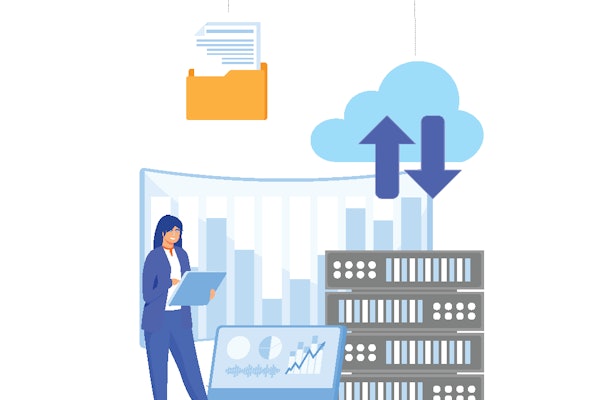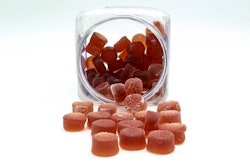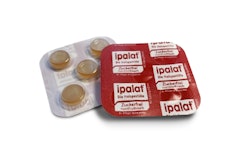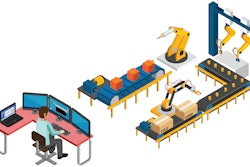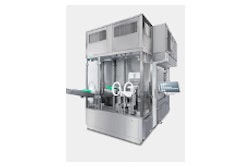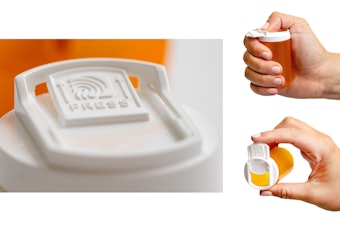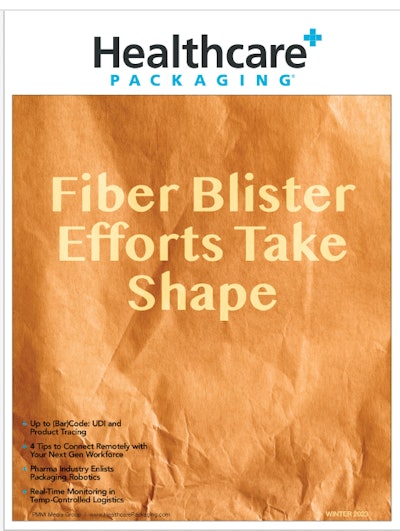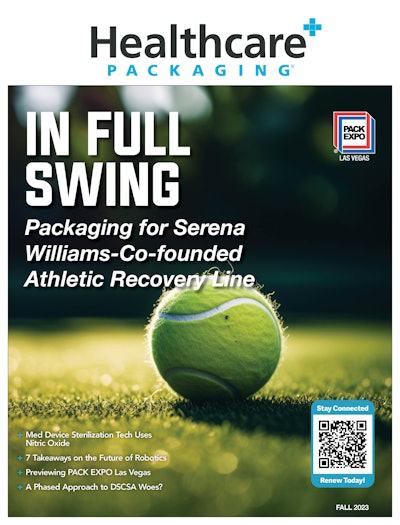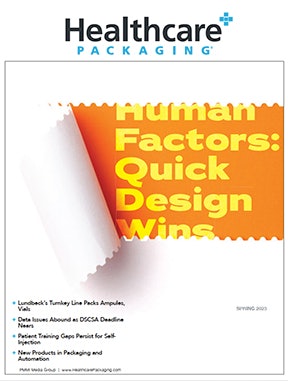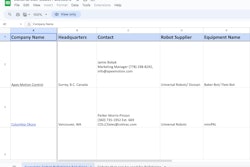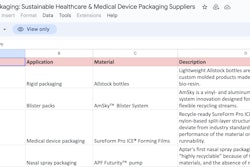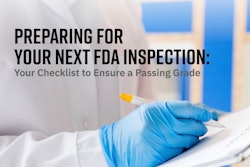Keren Sookne: Hi everyone. I'm Keren Sookne, editor in chief at Healthcare Packaging Magazine. If you're here, you're probably familiar with the critical nature of med device sterility from packaging all the way to the patient. Today we have Charlie Webb here with us to talk about the SterileAware initiative that he recently launched.
Charlie is president at Van der Stahl Scientific. He holds multiple packaging patents, and he hosts the podcast SPOT Radio covering topics in healthcare packaging. Charlie, thank you so much for joining us today.
Charlie Webb: Thank you for having me. It's a great honor to be here. Thank you.
Keren Sookne: Glad to have you. So I just wanted to launch straight into the questions.
So can you tell us about the very personal journey and goals that led you to launching Sterile Aware?
Charlie Webb: Sure. So, as I said in my talk in Anaheim [at MD&M West], you know, it's sort of like when a fireman's house burns down or a policeman's home gets broken into, it's ironic that somebody that's 27 years in sterile packaging, we're responsible for billions of sterile transfers. It was kind of ironic that of all the people, I would get an HAI. So I did on a scope when they were doing a sort of a stomach test on me. And so later on it ended up causing me an HAI that put me in the hospital. I was hospitalized for several weeks, and I was months in recovery.
And so when I was sick like that—I'm a researcher by nature—I sort of poked around a little bit and, you know, it was really shocking to find out how little the general public knows about HAIs. It’s responsible for more deaths… twice as much as say, breast cancer. So when we put it in those sorts of contexts, I mean, with some of these initiatives that have run, and I think it's every March 18th, that everything turns pink for breast cancer awareness—and certainly not to marginalize those efforts—it’s quite surprising to me that we don't do much more for awareness to the general public.
I think a lot of us industry understand the implications. You know, we're using a new metric now in healthcare packaging where we're talking about patient outcomes. And so even in our laboratory, I manage two ISO17025 labs, and we have a system where we really try to pull the silo dynamic apart and let our technicians know that, hey, this packaging machine is creating the sterile barrier system that's going to prevent infection on a patient, maybe kill them. My family was so affected. I mean, literally I almost died.
So when you have that kind of skin in the game, you know, I'm a helper by nature, so I wanted to look at different ways that I may be able to put some of my resources from Van Stahl and some of my know-how to work and literally on that near deathbed, I engendered three patents that I filed, which I believe will be fantastic technology for that end. And just started going down really sort of a checklist of all the ways that I felt that I might be able to help sort of thwart some of these problems and HAIs.
Keren Sookne: Wow. Yeah, I mean, it’s unfortunate that you went through that, but it's great that you took, you know, such a life altering experience and turned it into something that could potentially help millions of patients.
So really great work that you're doing there. So, as I understand it, you developed a certification system for machines. Do these work for any supplier or tell us a little bit more about that certification?
Charlie Webb: Sure. So, anyone who creates a device that is required to conform for ISO 11607, in our case, a packaging machine, you can get a “SterileAware™ Approved System INSIDE” label on your device. This is starting to grow right now. We're looking at what those parameters will look like. We obviously want to make this a sort of nonpartisan, if you will, process where there's no cronyism or any of that stuff. Obviously, none of that is allowed into this initiative. This isn't designed to be a funnel for my company. So we want to look at ways that any competitor of ours, anyone that's in the ISO 11607 conforming game can get a label on their machine. So it lets users understand that this device is commensurate to the regulatory girth that it's put under.
It's one of the challenges that, you know, I've seen from years of being in this industry… 30 years I've walked the MD&M floor, 27 in medical device packaging and it's quite surprising to me. I've seen generations of people working at a booth and only to realize that the people changed over the years, but their technology really seems very stagnant.
So we have an innovation sort of a drought in healthcare. I hate to be critical of our own industry. But I really don't believe you see much disruptive innovation in our industry. You know, one of the things that I mentioned in my deck on my talk on the Pack Place stage at MD&M was that, you know, we have consumer products like a filter system for your heating and air conditioning system at your home that have a battery, a sensor, and a transmitter for $16.
And it's important stuff. I mean, something like six and a half million people die of pulmonary disease. A lot of that is from indoor pollutants, they believe. So is it valuable? Of course it is. And if there's a product, certainly for $16, that connects the user with something that just has to do with scheduling, in fact, this app, I believe will even order you a new filter. So why don't we have machines that talk to engineering the quality group at medical device manufacturers that says, “Hey, there's a nonconforming event that's going on in the clean room and there's a chance that thousands of devices got into the sterile field and the sterile barrier containment system has been compromised?” And that's a technology that we're working on right now.
So we believe that, you know, we want to certify the machinery companies that are really behind the goal of creating devices that not only meet the spec but go beyond spec and that are really pushing the needle forward to keep patients safe.
Keren Sookne: Another, you know, part of the initiatives under the overall Sterile Aware initiative is that you're developing educational tools. So I was wondering if you can kind of talk us through the importance of those tools and, and maybe an example of the education that you're developing for technicians and hospitals?
Charlie Webb: Sure. Yeah. So, you know, one of the failures, you know, one of the things that I observed when I was sick is how many nonconforming events there were from someone walking into the room, washing their hand, touching a curtain and then touching you. So there was so many of these contamination issues, but it also goes into processing of medical device packaging or cleaning.
So one of the things that we, we did a little research on, we found that just those simple “be sure to wash your hand” signs that you see in public restroom, certainly at restaurants posted there. They're required usually by the county or city. And the reason those are valuable, it turns out that they will actually help compliance to that event by as much as 50%. Even conservative numbers are saying 20 or 30%. So imagine if we only had a 20% impact on that human factor, that workflow, what an aggregate impact that would have in terms of tens of thousands of lives.
So what we did, and I've had one here on my desk, we created a simple infographic. This is five steps on how to process a medical device, the cleaning, the sterilization, the importance of IFUs. We actually got a consultant from Eyes to See consultancy, and they were kind enough to develop the five steps for us. We created in an infographic. We've already distributed our first thousand. We're looking at maybe 10,000 for the first six months we're hoping.
And the goal, of course is to get these in every clinic, doctor's office, hospital, and of course we're doing that at no charge. And that's part of our training/education piece. The other part is gonna be scholarships. We have a small scholarship trying to herd over people who are in general packaging to consider medical device packaging.
We need more engineering talent over here on our side. So we're hoping to do that also for the skilled students that are really trying to up their game in terms of their learning. They're trying to get to expos, like the MD&M, the[PACK]out, PACK EXPO. And a lot of times it's not in their means to be able to travel.
So we're gonna help out by providing some travel expenses and hopefully get these young, talented people where they belong so they can learn more about this process.
Keren Sookne: Awesome. Yeah, so kind of segueing into that, is there a way for our readers or viewers to get involved in the SterileAware Initiative?
Charlie Webb: So we're looking at different ways to work this out. I mean, we're not an officially a not-for-profit organization. We're not that fancy. As it turns out right now, I've personally paid for most of these things myself. I mean, we're distributing a lot of these, the bracelets that say SterileAware.
Again, public awareness is gonna be so important for us to really move forward. A lot of us in industry understand about HAIs, but it just doesn't seem to go outside of the industry. If you ask the general public what is an HAI, they have no clue. So because it's something like the third cause of death or something like that, we really need to talk about it. We need to get the general public involved.
So we're hoping to do things like billboards and distribute more of the wristbands. Get other companies to maybe put the logo on their website and maybe link over to other things that they can do. One of the things that we're talking about right now is motion not money, which is a process that we hope will sort of help democratize that effort by saying, “Look, you don't need to donate money for this thing. That's not what we're about. But if you could commit to some action that would help the mission, that's more important to us, and then you'll be recognized for that motion.” Rather than just sort of money that sits in a lot of organizations. Not to be critical, but a lot of that goes to administration. This is just a very grassroots organization and we're building more and more on this, but really what we're trying to do is pull in friends, colleagues, and say, “Hey, how can we all grab a shovel? Let's help get the word out and let's make the mission a success.”
Keren Sookne: Okay, great. So speaking of kind of awareness in the industry and outside the industry, I understand you've launched SterileAware awards, so I wanted to talk to you more about that.
Charlie Webb: We're super proud of this. So you know what happens—some of this may sound like sour grapes—but this past year I applied, I won't say the name of the award, but I applied for an award for a patent that I have, which it's a human tissue isolation pouch. Well, it's nothing real sexy or fancy, that's for sure. But what it is, is effectively a prophylactic that you can seal an inner bag, so when they're processing human tissue, they can keep from contaminating the packaging machine, which could cause a risk because we can't sterilize, you can't gamma radiate, you know, the human tissues. So we have to aseptically process it.
And so this is a really cool device. It's a great solution. I was very proud of it. Years in the development of this thing. And I didn't get the award, so, you know, maybe it's sour grapes, but I felt like a lot of times when I do a closer look at some of the awards that are getting, I mean they’re for curvaceous packaging.Which is terrific, but you know, we're doing things here that are saving lives.And not that pretty doesn't matter. It does matter. Nice design, industrial design is a good aim, but we believe in function AND form, and sometimes I feel like form kind of takes a precedence and we don't think that's fair.
We also think that a lot of the people who would never in a million years… I mean a lot of the people that are getting awards, they have white papers, and they have a million degrees and so we have the Superstars in Sterile Awareness. That's anybody in the SPD. You know, I talk about on the talk that I had in Anaheim that there's a great story where we pay these people—they’re one third of the surgical team—we pay them on average around $15 an hour. So one third of the surgical team… they're called, you know, the SPD department, people say it stands for the “stupid people downstairs.” They have a just terrible reputation. They treated unfairly. They're underpaid, and these people are doing amazing, heroic work. But when you feel so underserved… here's what happened in the Midwest: we have a case study. A Chick-fil-A opens up across the street and the hospital loses their entire SPD department and they have to cancel surgeries. So are we doing, you know, the right thing there? Clearly, we're not.
We need better certification for them. We need better training, better conditions, better recognition. I'm on the KIIP group. One of the things that we're springing up right now that we hope to bring to the steering committee is a plan to really sort of help them with a public relation role so they can really get recognized better because we think fair is fair.
And so the second award that we'll be doing is the Superstars in Sterile Packaging. We've already given away, I believe, seven right now. And these people that we know, I mean, we know street level who's doing amazing stuff and mean frankly, you can just poke around LinkedIn. You see who's posting. You see these people where they're at, what they're doing. You see them at every meeting. You see them posting at nine o'clock at night about their job. They're passionate about what they do. Those are the people we believe deserve recognition. And I think a lot of times that doesn't happen. And so through my own frustration with not getting awards, as I say, maybe it's sour grapes. But that said, I really believe that we need to democratize these awards and really get down to the street level. Ask around…you can go to Yelp to find a restaurant when you go into a town, or you can do what my wife and I do. We stop and we start asking people walking down the street. It's that street level. Because unfortunately there's a reporting bias with things like a Yelp or a Google Review where people who tend to complain tend to complain. So you need to sort of pull out that dynamic and say that, you know, people who tend to apply for awards tend to get awards. Meanwhile, a lot of the people who don't do that are busy doing amazing stuff. They are indeed superstars and we wanna recognize that.
Keren Sookne: So this is something that somebody can nominate a colleague for if they, you know, want to recognize them?
Charlie Webb: Absolutely. I think our rules are about four sentences, you know, it’s something again that we try to make it to where there isn't a lot of prerequisites because then you start, you start filtering back to the point to where you’ve removed their ability to get an award. And we think it's important.
And you know, it's funny, I was reading about recognition and the value that it has for workers and people performed so much better. I mean, we all got gold stars when we were in elementary school. Those things were magic. In fact, there was a report in college where a professor was giving gold stars out kind of more for fun. At the end of the semester, he noticed that a lot of the people were taking the stars off their paper, and they were peeling 'em on the back of their notebook. They saved every star that they got during that whole term. Does it matter to 'em? Of course it does. We want recognition. Sure that's not saying that we need a pat on the back and a lot of fanfare, but if we don't recognize people, it's unfair and it hurts performance.
Keren Sookne: Right. Absolutely. With that I'm just curious, is there anything else that you want our viewers or readers to know about the Sterile Aware Initiative, before we wrap for today?
Charlie Webb: We're doing a few things. We started a think tank. So it's gonna be a place where I'm inviting several people, engineers, people that have cool 3D printers.
It's kind of a room of nerds to be able to do cool stuff. And so I want this think tank to be able to get together and come up, “Hey, here's a great idea.” And again, you know, we'll sort out the IP part of this later. The goal is let's come up with some cool stuff and let's distribute it fairly to people who can develop it and get it to the market.
Maybe some of the stuff has no market value. Maybe it's just something that should be there, but it doesn't have market value and that's its beauty. So the think tank is another part that we're really proud of. We think it's gonna do cool stuff.
We also just to let everybody know what's going on. We just launched our SterileAware podcast. First episode started yesterday [as of press time]. And it's there to speak to people the SMEs in healthcare associated infections. And so it's a way to connect to the cause, HAIs, what's being done, cool, new tech, new techniques that are being done, and also updates on our mission. That will be periodical. We don't really have a particular cadence built out. But probably every couple of weeks we'll be dropping another one of the SterileAware podcasts. And so we think that's another cool thing that we've got going and it's a great way if you're in anywhere in that realm, to be able to listen in and learn more.
Keren Sookne: Awesome. All right. Well, you sound like a very busy person. You have a lot going on.
Charlie Webb: I am. I love it.
Keren Sookne: And I mean, a room full of nerds sounds great. You know? Sign me up.
Charlie Webb: Well those are my people.
Keren Sookne: I just wanted to thank you so much for your time. I know you're super busy, so I really appreciate you joining us today and, and getting the word out.
And yeah, to the viewers, thank you so much for watching. Stay tuned for more articles and videos in medical device packaging of all sorts. So thanks again.
Charlie Webb: Thanks again. Thanks for having me.
![Speaking on sustainability at last year's the[PACK]out (from left): Lindsay Smaron, Samantha Smith, and Kevin Kane with Moderator Jamie Pero-Parker, PhD. Image: the[PACK]out](https://img.healthcarepackaging.com/files/base/pmmi/all/image/2023/04/sustainability_packout.6448509b2a6d2.png?auto=format%2Ccompress&fit=crop&h=167&q=70&w=250)
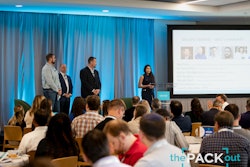
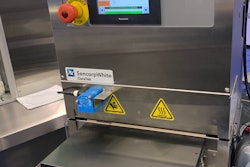
![the[PACK]out founders (from left): Cassie Ladd, Sarah Rosenblum, Karen Polkinghorne, Jill Cinalli, Rod Patch, Kiley Djupstrom, and Jenn Goff. (Image courtesy: Cassie Ladd)](https://img.healthcarepackaging.com/files/base/pmmi/all/image/2023/01/Screen_Shot_2023_01_18_at_2.48.57_PM.63c87765732e1.png?auto=format%2Ccompress&fit=crop&h=167&q=70&w=250)
